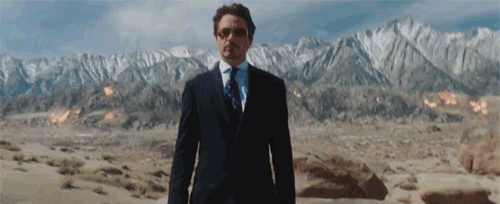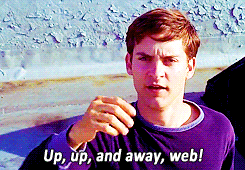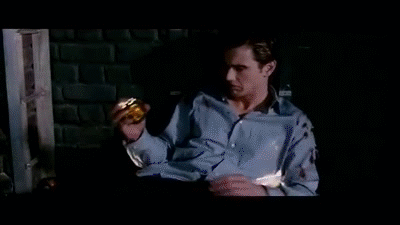What is it about Superheroes that we love so much? Ever since Iron Man kicked off the Marvel Cinematic Universe in 2008, they’ve been using their super strength, super speed and super intelligence to make super money and dominate the world’s box offices. Batman vs Superman, Captain America: Civil War, even lesser-known franchises like Guardians of the Galaxy; if it’s got a mask, a cape and a smattering of latex then we want to see it on a big screen.
But why now?
There are lots of possibilities. The MCU only really started after Marvel regained its characters and trademarks (which they previously sold to Fox), forcing DC to flood the cinematic landscape with reboots of Batman, Justice League and Suicide Squad. You could also put it down to pure luck, the right directors being with the right writers at the right time to make good films.
But I think it’s more interesting to look at the context. After all, art is a product of its time and through the huge number of reboots, spinoffs and cinematic universes across nearly forty years, there’s plenty to talk about.
Take Superman for example. The original films were made in the 70’s and 80’s as an homage to the comics, complete with red outside-the-trousers underwear. They were aimed at kids so they were low on scares, a little campy and altogether a heartwarming family experience, but fast forward thirty-five years you get crazy shit like this:

That’s right, America’s favourite blue-and-red superhero just straight up murdered the antagonist, complete with the cartoon ‘Snap’ sound of his neck breaking. Granted, Zod was about to kill some innocents, but why couldn’t Superman just trap him in a box like last time?
It’s the same story with Batman; he went from being Val Kilmer and/or having Batnipples in the 80’s and 90’s to an asthmatic antihero in 2005, before going really crazy and burning people with a branding iron in 2016. Judge Dredd went from being ‘Sly Stallone on a motorbike’ to ‘Karl Urban throwing bad guys off the roof in slo-mo’. Even the Terminator franchise tried to go darker, dropping from Judgement Day, one of the best sequels ever, to Rise of the Machines (piece of Shit), Salvation (poorly-lit piece of shit) then Genysis (biggest piece of shit to date).
And any superhero movies that aren’t dark, gritty anti-hero stories are laughed out of the cinema. Superman Returns was a critically-successful love letter to the previous Superman franchise, with images and dialogue faithfully recreated to show that Bryan Singer was a serious fan. But audiences hated it, rating it lower than the critically ‘meh’ Man of Steel and turning it into a superheroic punchline. And yes, Green Lantern was terrible, but it was no worse than The Wolverine (whose plot is basically ‘Wolverine, but in Japan’) and I don’t see anyone giving Hugh Jackman shit about it.
So why have audience opinions shifted? Why have we gone from ‘light and campy’ to ‘dark and brooding’? What happened between the late 90’s and early 2000’s that could have sent audiences spiralling into a worldwide cycle of fear and depression?
Want to take a guess?
It’s 9/11.
Now this might seem like a reach, but there’s plenty of evidence to support it. The premise of Iron Man is that an American company is unknowingly arming middle-eastern extremists and America’s richest capitalist has to stop it.

In The Dark Knight, the Joker stopped being a chemically-bleached crime boss and morphed into a psychotic domestic terrorist. Hell, the plot of both Man of Steel and Avengers could accurately be described as ‘foreign threat attacks east-coast America, crashing into skyscrapers and killing thousands’. In fact this trope is so specific that dark and gritty superhero films fail if they don’t focus specifically on terrorism. Daredevil, Elektra, The Punisher and The Spirit are all examples of darker comic book movies that bombed in cinemas everywhere and the single unifying factor is that the antagonists are criminals, not terrorists.
However, there are exceptions. Both Dredd and Deadpool were commercial successes, despite a focus on crime. But both films had very simple plots with very simple goals; kill someone. No crusade, no morality, there’s just one bad guy who needs to die before the protagonist can call it a day and go home.
The best example of this post-9/11 worldview comes in the form of Iron Man 3, in which a(nother) middle-eastern terrorist threatens to destroy America with targeted explosive attacks. In order to stop the attacks, Iron Man has to learn where the terrorist is based and, plot twist, it’s actually a convoluted plot orchestrated by an American think tank. It’s literally a 9/11 conspiracy movie mixed with superpowers and a little misdirection.
Even Spiderman tried to cash in on that sweet, sweet 9/11 action. The first Spiderman movie was filmed before the towers fell, but the film itself was released afterwards. For those of you who don’t remember, Spiderman has two big turning points in that film; the death of his Uncle Ben and realising Willem DeFoe is murdering everyone on the board of his company. Green Goblin is insane, but he just wants to murder a relativity small number of people for personal gain. Now think about this compared to Spiderman 2, the most successful film in the trilogy. The stakes in the second film are much higher and yet oddly specific; if Spiderman fails to stop the bad guy, there will be a huge explosion in New York and hundreds of thousands of people will die. Is any of this starting to sound familiar yet?
But it kept trying to go darker. Somewhere over the course of three films, Spiderman (whose main job is to give teenage boys someone to empathise with) went from this

To this

9/11 changed everything for everyone. It was an attack on the most powerful nation on Earth and none of us could stop it. There’s no point in telling us that everything will be fine anymore, because we know it isn’t. Instead we needed the comfort of someone who could step in to stop bad things from happening. We needed characters strong enough to defend us, and let us know that the world can survive anything that is thrown at us.
The world needed heroes, so we created them. They weren’t the heroes we deserved, but they were the ones we needed, right then.
Great post. Throw in the fact that in all super hero movies/comic books that the police are ineffectual and effete and you have the premise of needing am uber man who is willing to break rules.
LikeLiked by 1 person
It’s true! In every movie, the police can’t be a viable option because that’d undercut any drama in the film. I’d love to see a slice-of-life narrative that depicts the private life of an LA cop who is consistently *good* at their job.
I literally just realised that I want to watch The Wire, but in movie form
LikeLiked by 1 person
I just came here for the Batnips.
LikeLiked by 1 person
Excellent article. I’d never really thought about it this way before. Have you featured this with any other movie websites yet? Thanks for writing, really interesting piece!
LikeLiked by 1 person
It hasn’t featured on any other site, but thanks a lot for the feedback! It’s also great to find out that someone enjoyed something I wrote
LikeLike